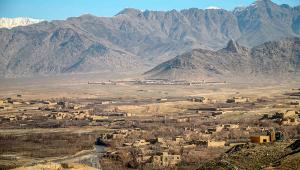By Nick Mann | 14 September 2012
The UK Department for International Development should have been better prepared to respond to the humanitarian crisis caused by the drought in the Horn of Africa, which left tens of thousands of people dead in late 2010 and early 2011, a watchdog said today.
The Independent Commission for Aid Impact said that although the DFID played a leading role in addressing the crisis, which affected 12 million people in Kenya, Somalia and Ethiopia, both the department and the humanitarian system as a whole lacked flexibility in their response.
In DFID's humanitarian emergency response in the Horn of Africa, the committee said that earlier action in Somalia in particular could have alleviated suffering caused by the crisis, which was the result of failed rains in both late 2010 and early 2011.
The department could also have been better prepared in terms of its resources and have had more flexible mechanisms built into its programmes that would have allowed it to scale up its response to the crisis earlier than July 2011.
Graham Ward, ICAI chief commissioner, said: ‘Overall, the UK made a real and positive difference to the lives of millions of women, men and children in dire needs in the Horn of Africa.
‘DFID now need to address the recurring crisis in the region and build sustainability and resilience to work towards longer-term solutions.’
Overall, the DFID’s response to the crisis was rated ‘green-amber’ by the commission, recognising that it performed relatively well against its criteria for effectiveness and value-for-money but that improvements should be made.
In particular, it should work with other major organisations and governments to develop a ‘cohesive early warning system’, with triggers for action in the event of a recurring crisis in the region, the ICAI recommended.
These partners should also focus on finding ‘lasting solutions’, such as supporting the infrastructure development needed to address chronic poverty. The department’s expertise and experience could help to tackle issues relating to refugee camps and the sustainability of the nomadic herding lifestyle that is prevalent in the area.
A DFID spokeswoman said the department was already working to improve its systems in the area. ‘As this report makes clear, Britain led the response to this crisis with effective aid which fed three and half million people and provided health services, vaccinations and clean water for hundreds of thousands more, but too many still face an uncertain future,’ she noted.
‘We are already working to strengthen early warning systems and help people to cope with regular droughts across the region and beyond.’
She added: ‘Britain cannot do this alone. We will use this valuable report to strengthen our own work, and press the international community to avoid future crises.’













